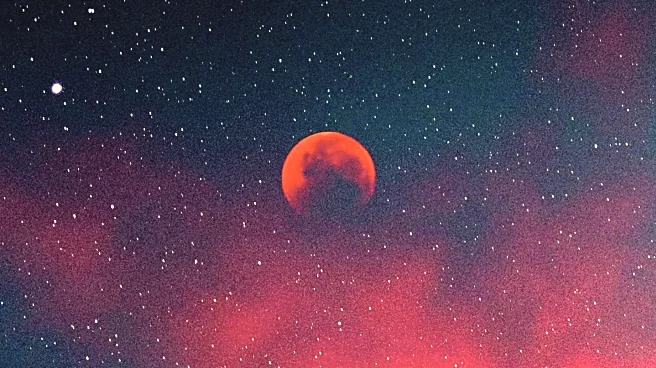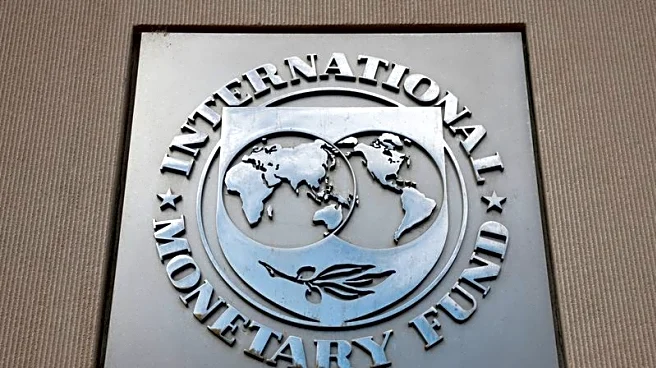What's Happening?
A total lunar eclipse, known as the 'Blood Moon' due to its reddish hue, is set to occur on September 7 and 8, 2025. This event marks the second and final total lunar eclipse of the year, lasting over five hours with 82 minutes of full totality. The eclipse will be visible in regions including India, China, Russia, western Australia, eastern Africa, and much of central Asia. However, North America will largely miss out on the spectacle as the moon will have already set, with only the western tip of Alaska potentially catching a partial phase. The eclipse will be visible in the UK and western Europe as the moon rises. The Virtual Telescope Project in Italy will broadcast the event online, allowing viewers worldwide to witness the eclipse.
Why It's Important?
The 'Blood Moon' is a significant astronomical event that attracts global attention due to its rarity and visual spectacle. While North America will miss the full eclipse, the event highlights the importance of international collaboration in astronomy, as organizations like the Virtual Telescope Project provide access to those unable to view it directly. This eclipse also underscores the growing interest in astro-tourism, with regions offering prime viewing conditions potentially seeing increased tourism activity. The event serves as a reminder of the interconnectedness of global scientific communities and the shared human experience of observing celestial phenomena.
What's Next?
For those interested in viewing the eclipse, the Virtual Telescope Project's live stream offers an opportunity to experience the event remotely. Astro-tourists may plan trips to regions with optimal viewing conditions, boosting local economies. Additionally, the eclipse may inspire educational initiatives and public interest in astronomy, encouraging further exploration and study of celestial events. As the eclipse approaches, weather conditions will play a crucial role in visibility, prompting enthusiasts to monitor forecasts closely.
Beyond the Headlines
The 'Blood Moon' phenomenon can spark discussions on the cultural and historical significance of lunar eclipses across different societies. Historically, such events have been interpreted as omens or significant markers in various cultures, influencing folklore and traditions. In modern times, they offer a chance to reflect on humanity's progress in understanding and exploring space, highlighting advancements in technology and international cooperation in scientific research.











